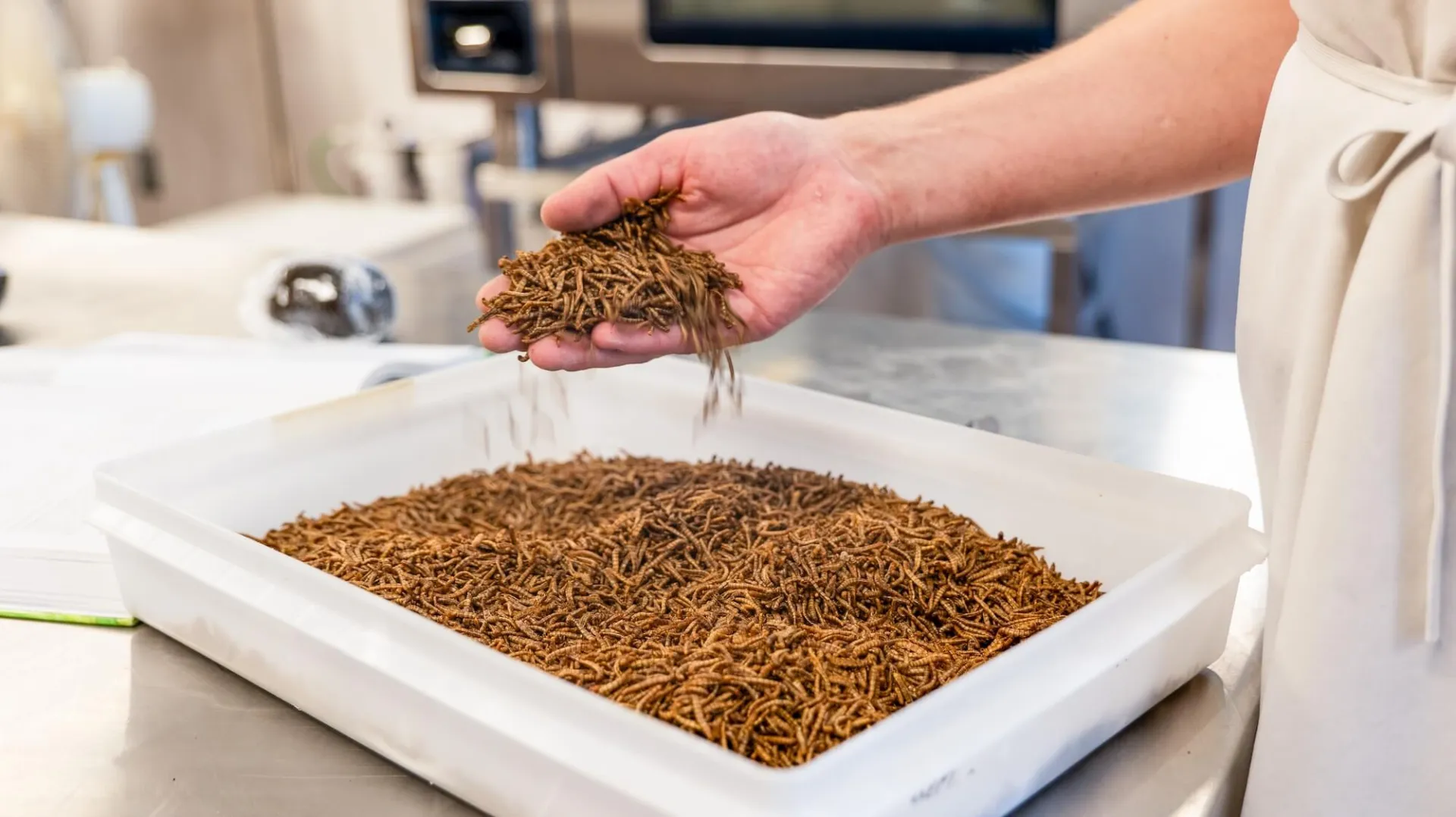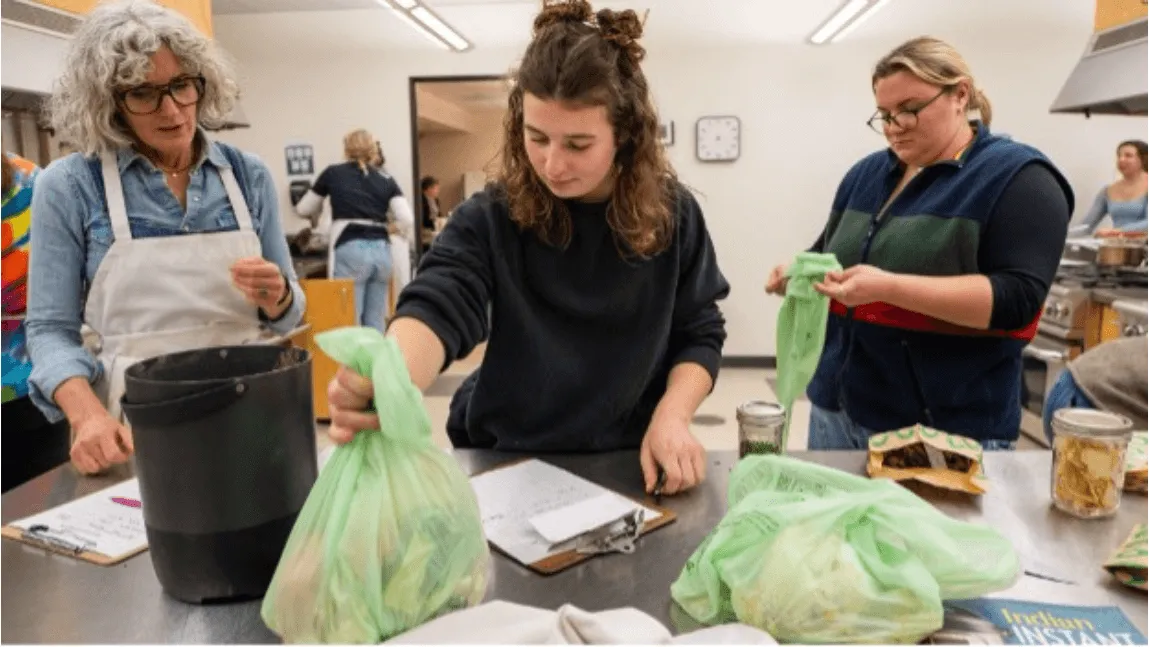What might get you to add insects to your diet? Perhaps if they tasted undeniably delicious. At the University of Vermont (UVM), PhD candidate Patrick Shafer is working to make this vision a reality. With a rich background in food, from slinging sandwiches to teaching childhood culinary education, Shafer is now focused on research to introduce insects as a sustainable protein source. "I love cooking food, making it taste delicious, and I really like taking foods that are a little bit less common and making them accessible," he says.
Shafer's interest in high-protein flours began while working at a bakery in Philadelphia. It was there that he first wondered why Americans don't eat more insects. The bakery was searching for high-protein flours and discovered that insect flour could be up to 50% protein, compared to the 12-14% found in traditional wheat flour.
One of the biggest hurdles Shafer faces is the Western aversion to eating insects. "You need to be able to convince people to start eating bugs. They have to be OK seeing it, knowing that they're eating them, and then put it in their mouth. That's the big barrier," he explains. Changing perceptions about food is no easy task, but Patrick is determined to make it happen.
Mealworms are high in protein, but are also rich in micronutrients like zinc, iron, magnesium, calcium, and vitamin B12. They contain essential macronutrients such as omega-3 and omega-6 fatty acids and are easily digestible. But one of the real reasons they could be a food of the future is that their farming and production is incredibly efficient. They have high feed efficiency, low emissions, minimal water and space requirements, and can be farmed year-round. They thrive on agricultural byproducts and food waste and even produce high-quality organic fertilizer.
Patrick's approach is to contextualize insects within familiar foods. By integrating insects into foods like falafel and baked goods, he hopes to make them more acceptable to consumers. Because early adopters of new products tend to be young and progressive, Shafer has conducted focus groups with UVM undergraduates to learn their reactions to his mealworm flour products like breadsticks, pretzels, and cookies.
He’s reported an openness and a general positive reaction from the students, who often find the taste surprisingly normal. "Students can be so nervous before trying an insect-based food, they expect it to be really challenging. Then when they eat it they’re relieved that it tastes like a regular cookie, and they’re ready to try more foods” he notes.
Shafer is a UVM Food Systems Research Center PhD Fellow and works with the UVM Climate Kitchen, a maker's space for collaboration and experimentation that works to reimagine the connection between cooking and climate change. Shafer will continue his research this summer as part of the Climate Kitchen Summer Institute, which funds UVM researchers to work on projects ranging from developing climate-smart mung beans to engineering food-grade scaffolds for cellular meat.
While prior research shows that mealworms are a sustainable protein choice, Shafer’s work in the kitchen developing new recipes could be what helps get insects on dinner plates. “No one is going to change their diet just because it’s good for the environment,” he says. “We value sustainability, but the main reason why we want to eat something is because it’s delicious.”
About the FSRC:
The Food Systems Research Center (FSRC) at the University of Vermont (UVM) funds people and planet centered collaborative research that connects disciplines and communities to answer complex food systems questions.
This story is an example of the work of the University of Vermont Planetary Health Initiative, which supports research and education related to the link between the health of human societies and the environment and fosters innovative approaches toward a healthier future for people and planet.



